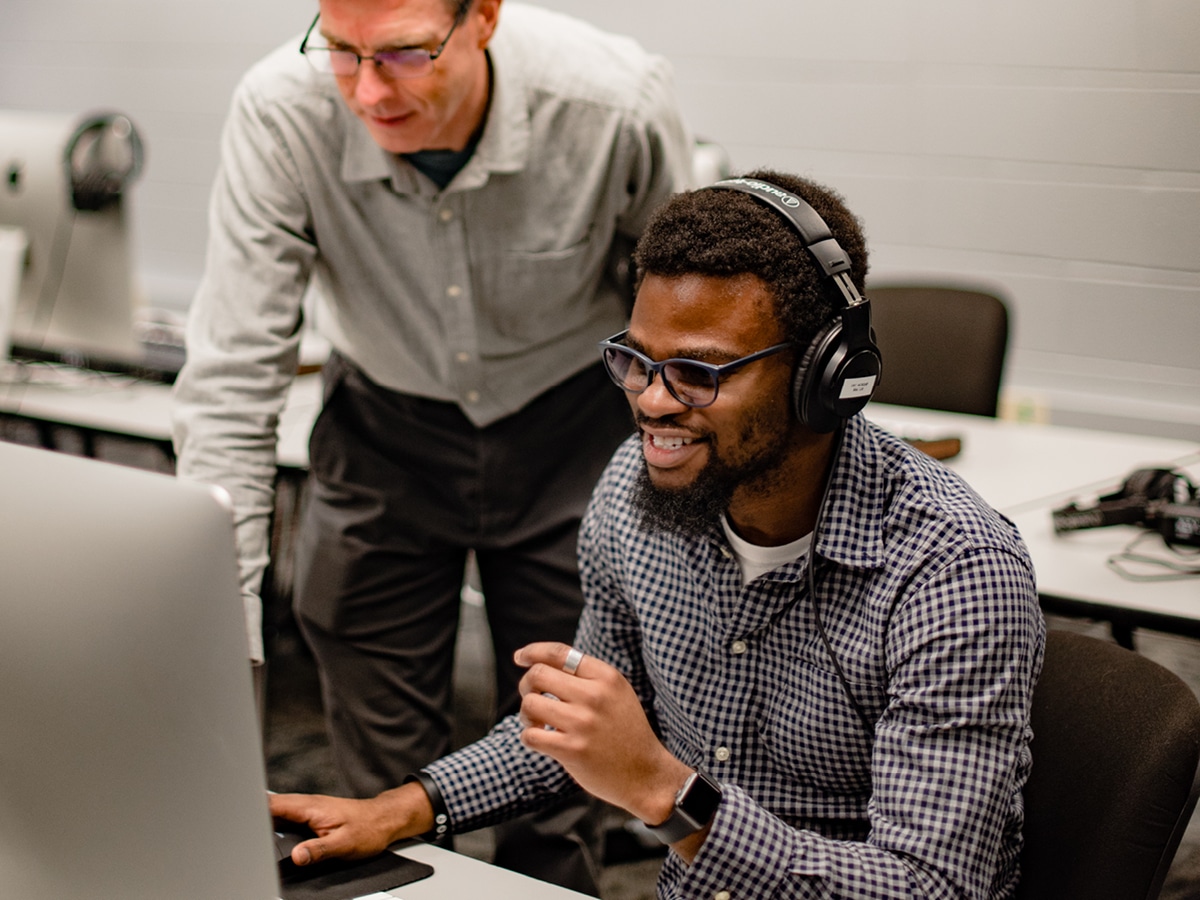Bachelor of Science in
Psychology
The Bachelor of Science in Psychology program will equip students to holistically improve the lives of others through psychology. This program covers more than just learning to diagnose and treat mental illness. Students will practice helping patients with regard to psychology, sociology, biology, and spirituality. Learn to understand psychology from a biblical perspective so you can make an eternal impact wherever you go.
Online Undergraduate Start Dates
September 10, 2024
Discover & Expand Your Calling From Anywhere
With Grace Christian University’s online degrees, you can further your education no matter where you are. Our online programs are designed to help you become equipped for the Lord’s calling on your life, while working through your classes anytime, anywhere.
Grace’s online degrees offer the same, high-quality level of education as our on-campus options. Each degree also includes required Bible and Theology courses. No matter what track you choose, you’ll graduate with a deeper knowledge of God and His Word, prepared to make an eternal impact wherever you go.
Experience an Education with a biblical foundation
Develop Godly Friendships that will last a lifetime
Feel Confident and Prepared for your ministry career
Learn from instructors who really care
What to Expect
Excellence in Psychology, Grounded in Faith
At Grace, our curriculum goes beyond conventional education, weaving biblical principles into every facet of learning. We aim to develop passionate servants of Jesus that emphasize the integration of character transformation, ministry experience, and biblical truth.
2024–25 Tuition Cost
An Affordable Psychology Online Degree
Explore the pathway to an affordable yet exceptional Psychology degree. With a range of financial aid options and competitive tuition rates, we’re dedicated to ensuring that every student has the opportunity to excel in the pursuit of their calling without the burden of overwhelming student debt.
$470
Online Tuition Cost Per Credit Hour
$250
Online Tuition Cost Per Credit Hour
Military Personnel (active duty, veterans, spouses, dependents 23 or under)
$0
Online Application Fee
$150
Online Resource Fee per 3-Credit Course
(Covers all textbooks and other resources required for Grace Online students)
48
Months*
120
Credit Hours
5
Week Courses
* Taking one five-week, three-credit course at a time on a year-round rotation, students typically complete 9-10 courses per year. Depending on the student’s transfer credit status, completing the 120-credit B.S. degree generally takes four years.
Career Paths
Psychology Career Paths
Psychology students will be equipped with a versatile skill set that opens doors to a variety of career opportunities. Whether you’re drawn to, social work, case work, or counseling., or beyond, the possibilities are vast.
Here are just a few examples of the diverse paths our alumni have pursued after completing their studies:
- Counselor
- Human Resources Director
- Forensic Psychologist
- Psychiatrist
- Therapist
- Social Worker
- School Counselor
Psychology Faculty
Our dedicated faculty members are the heart of our Psychology program, embodying qualities of care, mentorship, and a steadfast commitment to Christ-centered education. Each member brings a wealth of professional expertise, ensuring that our students receive top-notch instruction grounded in real-world experience.
Benefits of Our Online Programs
Students in the Online Bachelor’s degree programs:
- Attend classes on a flexible schedule that allows for work and family responsibilities
- Expand career and ministry opportunities with a degree that opens doors
- Obtain an affordable, high-quality education
- Gain collaboration skills through working with classmates and professors
- Achieve an educational goal
Course Descriptions
Psychology Courses
The Psychology program will equip students to holistically improve the lives of others through psychology. This program covers more than just learning to diagnose and treat mental illness. Students will practice helping patients with regard to psychology, sociology, biology, and spirituality. Psychology is ideal for those that want to become a Counselor, Social Worker, Psychiatrist, Therapist, or Human Resources Director.
The Bachelor of Science in Psychology (120 credit hours) is comprised of:
- Arts and Sciences Core (30 credits)
- Bible and Theology Core (30 credits)*
- Major (45 credits)
- Undesignated electives/Minor (15 credits total)
- Total required for degree (120 credits)
*18 credits for Degree Completion Transfer Students
Psychology Major
The Psychology program will equip students to holistically improve the lives of others through psychology. This program covers more than just learning to diagnose and treat mental illness. Students will practice helping patients with regard to psychology, sociology, biology, and spirituality. Psychology is ideal for those that want to become a Counselor, Social Worker, Psychiatrist, Therapist, or Human Resources Director. Specialists, Social Media Managers, Communication Directors, Business Leaders, Event Planners, Journalists, Public Servants, or Cultural Advisors.
Choose One:
Introduction to Psychology
PSY 201A general survey of the discipline of psychology including the principles, methods, vocabulary, and major theories in the study of human behavior. Consideration will be given to selected application of psychology for life and ministry. |
3Credit Hours |
Or:
Principles of Sociology
SOC 251A study of contemporary Western society with emphasis on culture, socialization, group life, social institutions, social processes and social change. |
3Credit Hours |
Psychology of Leadership
PSY 215Reviews the psychological and social processes that characterize effective leaders. Students will learn about leadership in relationship to psychological exchanges between leaders and followers and situations/behaviors that make some people more effective leaders than others. Some key factors that will be studied include psychological theories related to leadership, importance of teamwork, role of power, motivation, role of emotional intelligence, expectations of leaders, and various factors affecting future leadership in the 21st century. All of this will be studied from a Christian worldview of servant leadership. Offered alternate years. |
3Credit Hours |
Lifespan Psychology
PSY 245Explores human development from conception through death using the bio- psycho-social-spiritual model. Using major theories, such as psychodynamic, behaviorism, cognitive, ecological, etc., students will examine life span development similarities, yet also see how each life unfolds in its own unique pattern due to various factors such as temperament, personality, etc. |
3Credit Hours |
Social Psychology
PSY 325Examines individual behaviors within the context of one’s society. It is a study of how people think about, influence and relate to one another. Components of the behaviors studies in this course include attitudes, beliefs, prejudices, aggression, leadership, altruism, conformity, attraction, persuasion, and stereotypes. |
3Credit Hours |
Physiological Psychology
PSY 461An introduction to physiological psychology in which students explore basic principles of brain structure and functional mechanisms, including the role of neurons and neurochemistry. The interrelationship between observable physiological function and psychological behavior will be explored, including the behavioral consequences of damage to the physiological systems of the nervous system. |
3Credit Hours |
Health Psychology
PSY 339Examines the psychological influences on health, well-being and longevity. Students evaluate the interplay between emotions, cognitions and behavioral factors which affect the onset, duration, recovery and prevention of chronic illness and disease over the life span. Topics will include depression and illness, traumatic injuries, neuromuscular diseases, cancer and chronic pain. Psychological treatment involving wellness behaviors, smoking cessation, substance abuse, proper nutrition and exercise are studied from the biopsychosocial model. |
3Credit Hours |
Abnormal Psychology
PSY 310An introduction to the classification, description, and interpretation of behavior identified as abnormal. Emphasis is given to neuropsychological aspects, social variables and environmental conditions related to the acquisition and persistence of such behavior(s). |
3Credit Hours |
Survival Psychology
PSY 456Focuses on the traits responsible for surviving in high-stress environments, including responding directly to high-threat encounters. Pro-survival behaviors are presented, including the “gift of fear” and balancing independence and leadership versus the need for teamwork collaboration in responding to stressful events. Organizational and professional psychological traits present in law enforcement, paramilitary organizations and high stress organizations are explored, as well as healthy lifestyle factors that lead to career effectiveness and avoiding burnout, such as managing vicarious trauma and promoting self-care. |
3Credit Hours |
Research Statistics
PSY 282An introduction to research methodology and statistics as a liberal arts discipline, this course will not primarily be a number crunching course, though many statistical concepts will be presented in context. The emphasis of the course will be on developing an understanding of the principles and concepts underlying the use of statistics in social sciences research and applications. Topics to be explored include the formulation of questions and hypotheses, appropriate experimental design, sampling methodology, data analysis, and the presentation of results using graphical summaries and proper statistical notation. Offered alternate years. |
3Credit Hours |
Theories and Foundations in Counseling
PSY 349In this course, students will examine various theories of personality and counseling, with an emphasis on those theories used in the United States. Included in the course will be training in assertiveness and investigation of one’s own personality. Students will have an opportunity to develop some basic counseling skills based on the theories studied through the use of role play, case studies, and other means to learn practical strategies used in the counseling setting. |
3Credit Hours |
Counseling and Coaching Seminar
PSY/MIN 457An integrated approach to counseling and coaching techniques in a variety of contexts. Provides an overview of basic skills and develops a model for integration of skills with a faith-based approach to helping others. Students will practice skills and techniques within and outside of the classroom context. |
3Credit Hours |
Capstone
CAP 498Program Capstone |
3Credit Hours |
Arts & Sciences Core
Our Arts and Sciences Core curriculum is designed to cultivate holistic learning outcomes of human understanding, self understanding, and relational understanding. Through a diverse array of courses and interdisciplinary exploration, students delve into a variety of subjects, fostering a deeper appreciation for the world around them while honing essential skills for personal and professional growth.
Life Communication
COM 140Life Communication prompts students to identify their passion and excitement to use the gift of speech for good. By working through the process of topic selection, research, and speech organization, students will build confidence in serving others with their communication. In Life Communication, students will be encouraged to know their story, challenged to live their story, and empowered to tell their story. |
3Credit Hours |
Professional Communication
COM 290Explores the fundamental concepts, principles, and skills needed for effective communication in a global world. Emphasis will be given to communication concepts, skillful writing, professional interviewing, organized informational presentations, and cultural intelligence in the workplace. Prerequisite: ENG 101, COM 140 |
3Credit Hours |
English Composition
ENG 101The purpose of this course is to engage students in the writing process which includes prewriting, drafting, composing, editing, and revising to equip them for college-level written assignments. Students will learn to evaluate, synthesize, document and integrate scholarly sources into academic writing while adhering to the conventions of English grammar and mechanics. A final research paper is required. Must be completed with a grade of C- or higher. |
3Credit Hours |
English Composition with Lab
ENG 101LThe purpose of this course is to engage students in the writing process which includes prewriting, drafting, composing, editing, and revising to equip them for college-level written assignments. Students will learn to evaluate, synthesize, document and integrate scholarly sources into academic writing while adhering to the conventions of English grammar and mechanics. Attendance in the writing lab is required. Must be completed with a grade of C- or higher. |
4Credit Hours |
Argumentation and Research
ENG 201Building on a foundation of English composition, students will experience intensive practice in academic writing and research. Students will learn how to understand and think critically about the ideas and language of others and how to develop and persuasively articulate their thoughts. Prerequisite: ENG 101 or Advanced English Placement. |
3Credit Hours |
History Elective
HST —Choose any History Elective. See the On-Campus Undergraduate Academic Catalog for details. |
3Credit Hours |
Literature Elective
ENG —Choose any Literature Elective. See the On-Campus Undergraduate Academic Catalog for details. |
3Credit Hours |
Philosophy Elective
PHL —Choose any Philosophy Elective. See the On-Campus Undergraduate Academic Catalog for details. |
3Credit Hours |
Introduction to Psychology
PSY 201A general survey of the discipline of psychology including the principles, methods, vocabulary, and major theories in the study of human behavior. Consideration will be given to selected application of psychology for life and ministry. |
3Credit Hours |
Introduction to Cultural Diversity
SOC 243An exploration of cultural diversity and multiculturalism from a Christian faith perspective. This course provides a process to understand and practice cultural diversity competence. It is designed to initiate and provide ongoing preparation for effective interaction with everyone in our culturally diverse world. Growth in these skills equips individuals with the social graces needed to form bonds of mutual trust that will bridge the differences that ordinarily divides people. |
3Credit Hours |
Principles of Sociology
SOC 251A study of contemporary Western society with emphasis on culture, socialization, group life, social institutions, social processes and social change. |
3Credit Hours |
Math or Science Elective
MTH or SCI —Choose any Math or Science Elective. See the On-Campus Undergraduate Academic Catalog for details.
|
3Credit Hours |
Arts and Science Electives
—Choose any two Arts and Science Electives. See the On-Campus Undergraduate Academic Catalog for details.
|
6Credit Hours |
Bible & Theology Core
Our Bible and Theology Core curriculum is designed to provide students with opportunities for spiritual growth, ministry, and biblical literacy. Delve into learning to analyze biblical texts, engaging in service, and practicing spiritual disciplines.
Old Testament Literature
BBL 102Survey of the literature of the Old Testament in its historical setting, literary types, and main ideas. Attention is given to outstanding persons, events, and major teachings. |
3Credit Hours |
New Testament Literature
BBL 202Survey of the literature of the New Testament in its historical setting, literary types, and main ideas. Attention is given to outstanding persons and major events. |
3Credit Hours |
Bible Study Methods and Application
BIB 205An introduction to the principles and practice of inductive Bible study, with emphasis on the effective communication of biblical truth. This course will include assignments intended to develop skills in expository writing and biblical instruction. Christian Ministry requirements are also embedded in this course. |
3Credit Hours |
Biblical Interpretation
BIB 215An introduction to the principles and practice of biblical interpretation as well as the primary tools of biblical research. Intended primarily for students majoring in Biblical Studies, this course seeks to equip students with the knowledge and skills needed to correctly interpret and analyze various literary genres, as well as develop skills needed for accurate practical application and teaching. Christian Ministry requirements are also embedded in this course. |
3Credit Hours |
Upper Division Old Testament Bible Elective
BIB —Choose any Upper Division Old Testament Bible Elective. See the On-Campus Undergraduate Academic Catalog for details. |
3Credit Hours |
Upper Division New Testament Bible Elective
BIB —Choose any Upper Division New Testament Bible Elective. See the On-Campus Undergraduate Academic Catalog for details. |
3Credit Hours |
Christian Worldview
THE 161Investigates the key aspects of Christian Worldview: Creation, Fall, Redemption, and Reconciliation. The study of these topics will then be applied to cultural challenges facing Christians in postChristian world. |
3Credit Hours |
Christian Mission
THE 162Investigates the key aspects of Christian Mission: Spiritual Formation, Evangelism, and Global Mission. The study of these topics will then be applied to cultural challenges facing Christians sharing the gospel in cross-cultural contexts. Christian Ministry requirements are also embedded in this course. |
3Credit Hours |
Biblical Christian Thought
THE 213Emphasizes Scripture as the basis of Christian thought about God and surveys a range of Christian doctrine from the standpoint of systematic, historical and dogmatic theology. It also includes a survey of the progressive revelation of God’s plan in Scripture as foundational to a Christian worldview; provides a focused introduction to Pauline dispensational theology and its unique ecclesiological and eschatological interests. Christian Ministry requirements are also embedded in this course. |
3Credit Hours |
Theology of Spiritual Formation
THE 363Emphasizes the practical outworking of the Holy Spirit in the life of the believer. Special consideration will be given to how the Holy Spirit equips God’s people for service, a development of a plan for lifelong spiritual growth, and appreciation for the historic spiritual disciplines. Christian ministry requirements are also embedded in this course. Prerequisite: THE 213. |
3Credit Hours |
Upper Division Theology Elective
THE —Choose any Upper Division Theology Elective. See the On-Campus Undergraduate Academic Catalog for details. |
3Credit Hours |
Online Elective Track Options
An elective track is a group of four courses grouped together based on a single topic. Students may select a single elective track or select four individual electives. The strategic choice of electives allows the student to tailor a selected degree to their personal or career pursuits or to explore topics of interest.
Testimonials
What Our Students Are Saying
We believe education is more than just academics. Check out firsthand accounts from students like you who have been impacted by our vibrant community, transformative education, and unwavering commitment to faith.




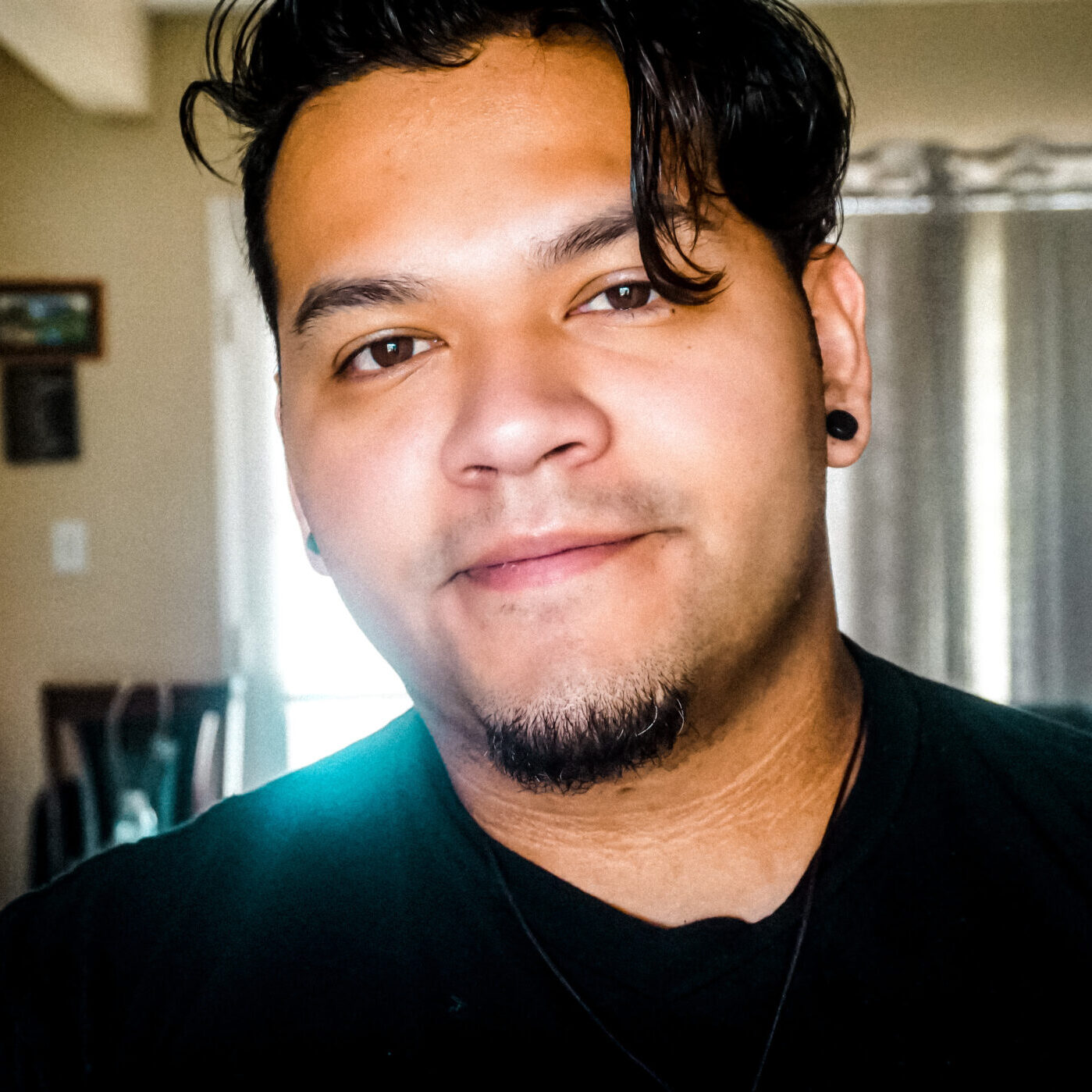

Frequently Asked Questions
Who is the Bachelor's Program for?
Anyone who has a high school diploma or equivalent and is seeking a quality Christian education. We offer tuition discounts for military personnel and payment plans for cash paying students. We also accept Federal Financial Aid.
What is the Grace Christian Difference?
Academic Rigor
The program will teach and develop graduate-level research, writing, critical thinking, leadership and communication skills. Beginning with the Program Seminar, the program is designed to acclimate students to graduate-level work and prepare them for the kind of reading, writing, and thinking skills they will need for the remainder of the program.
Student-Centered
The application of constructivist learning theory puts the responsibility of learning in the hands of the students. Whenever possible, students will be allowed to choose what they will learn, how they will learn, and how they will assess their learning in terms of their ministry and professional goals.
Best Practices
As a fully online program, Graduate Studies at Grace Christian University adheres to the best practices of online education, including, but not limited to: online presence, creating a supportive online community, a variety of individual, small group, and large group learning experiences, and clear communication in the online environment.
What Can I Expect from the Professors of this Program?
Your professors have first hand knowledge working in their areas of instruction, along with advanced degrees and higher education experience. They are eager not just to instruct, but to guide you on your faith journey and pray for you throughout your time here. Their desire is to help you succeed and equip you for where God has called you.
What are the Benefits of the Program?
Students in the Online Bachelor's programs will be able to:
-
Attend classes on a flexible schedule that allows for work and family responsibilities
-
Expand career and ministry opportunities with a degree that opens doors
-
Obtain an affordable, high-quality education
-
Gain collaboration skills through working with classmates and professors
-
Achieve an educational goal
What Flexibility Does the Bachelor’s Program Offer?
Students can work on one course at a time, at a time of day and week that is convenient for them.
Why Should I Study Online at Grace?
Advance your career from the comfort of your own home.
Our online master’s degrees are designed for busy professionals who desire to advance their careers. Through our flexible classes, our professors will encourage and mentor you as you expand your current pursuits.
Experience a caring community.
Connect with professors and students who will come alongside you as you pursue higher education and growth in Christ. At Grace, we’re passionate about equipping and supporting you to serve the Lord and others in all that God has called you to do.
Strengthen your biblical foundation.
At Grace Christian University, the Word of God is taught, valued, and celebrated. Deepen your knowledge of God’s Word as you receive an education grounded in objective Biblical truth.
The Grace Experience.
As closely as possible, the Graduate Studies program will reproduce the experience of undergraduate students (On Campus and Online) in an authentic Grace Christian University experience, expressing the ethos, core values, and historic mission of the University. This includes the University’s commitment to being a Bible-centered institution, committed to our historic Grace theological position, which values transformative relationships and service to church and society.
What Sets Our Bachelor's Programs Apart?
Our Enrollment Advisors are there for you.
One-on-one coaching through the admissions process and the first class with your assigned Enrollment Advisor. Your advisor will want to know:
- Your passion
- Your path and goals
- Life circumstances that could help or hinder your success
- How can they pray for and with you
Your advisor will take this information seriously and provide tailored care as you get started with your degree.
We Prioritize You
Your goals and giftings are prioritized so they drive your success; this is opposed to a one-size fits all mentality & communication.
We take care of all class registration and your personalized education plan is created when you begin your program, so you are able to see all courses required until your graduate date.
One Class at a Time
No required log-in time (you log in throughout the week when it works best for your schedule!)
Students finish their online degrees in the same period as if they were attending an on-campus program.
Our Professors Care
Staff and faculty care about each student's eternal impact, which influences the care and resources we provide. Professors care and are easily accessible.
Low professor-to-student ratio:
- Online Undergraduate - 9.3 students per course section
- Online Graduate - 7 students per course section
The Bible is Central
All classes are taught from a biblical foundation, regardless of subject, with weekly devotions.
Low Cost Quality Education
Low tuition for a private Christian education.
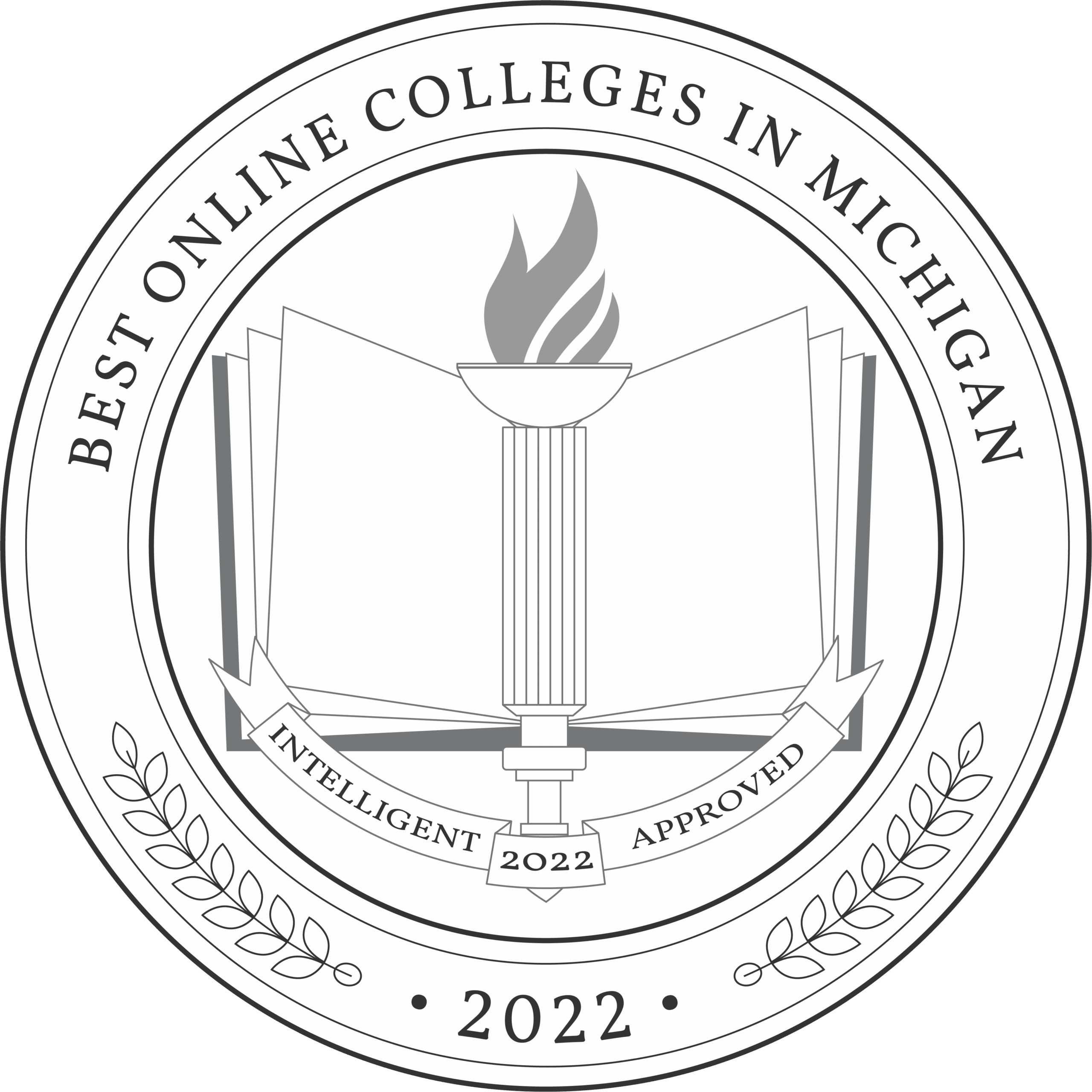

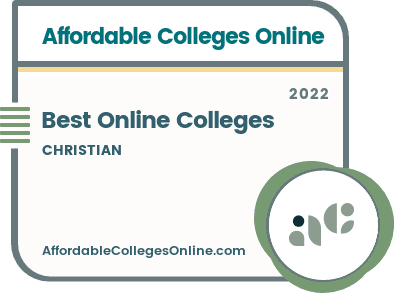


Take the Next Step
Your Calling to the World Awaits
Join the Grace community and embark on a transformative journey of faith, learning, and personal growth as you pursue your calling in the psychology field.


